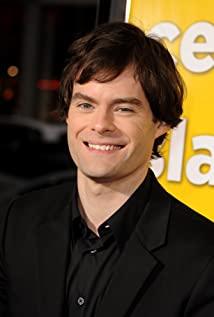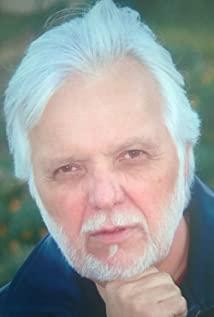Spike Jones is probably the leading character in American independent films. He is good at showing funny but contradictory emotional relationships between people from a unique perspective. Following "Being John Malkovich", "The Adaptation" and "Where the Wild Things Are" (Where the Wild Things Are), his fourth feature film, "Her", was released at the New York Film Festival It was highly praised when it was released. In the North American awards season, the major film critics association awards all the way, and the original screenplay was crowned as the best screenplay at the Golden Globe Awards. "She" is director Spike Jones’ screenwriter debut. Many places have the shadow of his queen screenwriter Charlie Kaufman. No wonder many film critics shouted that "She" has Kaufman's Eternal Sunshine of Spotless Mind). It should be said that "She" not only explores the deformed and imaginary relationship between the sexes, but also has a cautious reflection on the relationship between today's social emotions and technology.
■Artificial intelligence
Spike Jones created a future life world that we can predict in "She". The intrusion of technology into human daily life is even more "unscrupulous". Digital terminals not only satisfy human material needs, but also satisfy our spirit. Appeal. The social abilities of human beings are degenerating, and technology is gradually flooding the private and public spaces of human beings. Real communication between people is no longer a necessity. Zizek said that the radio waves distracted the interaction between external bodies and directly attacked our senses. In the film, the protagonist Theodore’s job is to write letters for clients. The "letters" of others can be packaged, copied and even programmed, and Theodore is just an emotional machine; after get off work, he returns to the apartment. Then enter a social space of human-computer dialogue, immersed in the closed world of interaction with computers and games.
The future world created by Spike Jones may panic some people, because the object of human beings is no longer living people, but artificial intelligence or computer operating systems. We have seen that the distinction between "living" and "artificial" is broken, and it is difficult for people to distinguish between the external interface and the internal reality of things. People have suspended their knowledge of what really exists under the skin, thinking that the surface (face or shell) directly reflects the inside (soul), and they enjoy the "normal" pleasure brought by whitewashing. Just like Theodore first met Samantha created by the voice system, he quickly changed the view that "she is just an artificial intelligence product" from a bystander to a loyal experiencer of the product.
■Artificial illusions
Artificial intelligence can induce people’s true emotions because Samantha can accurately imitate human behavior. In the film, when Samantha is excited, she will make a loud gasp, but in fact the machine does not need to breathe; she will also have emotions, sometimes sweet talk, sometimes cold talk, rather than a cold machine without feelings. As a result, Theodore got an illusion of communicating with real life.
The reason why artificial intelligence can induce real human emotions is not only that it can imitate and learn the individual behaviors of life, but also that it can encode the etiquette and culture of human society into its daily behaviors, opening up the way for fake emotions. the way. Therefore, although she appeared as a "fake" at the beginning of the film, the protagonist felt her "real" at the end.
In the film, Theodore just walked out of the shadow of divorce and met Samantha by chance. Her wit, understanding, and unassumingness quickly attracted him. More importantly, like human beings, she grows up in communication. Not only can she help Theodore deal with the complicated daily letters, but she is also willing to listen and answer questions. Invisible, a kind of Plato is quickly built between the two. The type of "love", the talent she appreciates, he gradually relies on her in life and psychology, which is exactly the same as the relationship between the sexes in real life.
■Emotional double
In fact, Spike Jones borrows Samantha’s image and is still talking about the issue of identity and emotional stand-in, just as the director copied another Nicholas Cage in "Adapted Screenplay"; or the protagonist in "Life as a Puppet" enters Mar Kovic’s brain plays or manipulates his will; or the director himself has been playing entrepreneurs, music video directors, skateboard punks, adventurers and other multiple identities in his life. You can’t tell which is the real Spike. • Jones.
The same is true in "She". The voice system Samantha has no real life experience, nor can she secrete hormones in love, but she can pretend to be another person, change roles, and use imagination to create romance and realism. What about Theodore? He writes letters on behalf of others without personal experience, as long as he imagines the love and love according to the client's account, composes each other with words, and synthesizes the client's handwriting with a computer simulation to send the goose biography. They are all disguising their identities, interpreting the lives of others, and changing roles, but they are just substitutes for others.
The director used Samantha as a stand-in to raise a serious question. In this world where everyone is concealing and pretending to be themselves, is there any real emotions? In other words, is Theodore's abnormal fascination with Samantha really love?
■Love projection
Theodore is obsessed with Samantha. On the one hand, Samantha is a perfect emotional container. Theodore's autism, isolation, and poor communication will not affect the communication between them. The latter can not only be a listener Senator Theodore's various negative emotions, and actively catered to Theodore's various emotional requirements, and able to appear at the right time regardless of when and where, share joy and resolve worries.
On the other hand, Samantha's virtual and abstract identity also provides plenty of room for imagination for Theodore's empathy. There are two subtle designs in the film. The first is that Theodore is bored at night with female phone sex in the Internet chat room. The object of his sexual fantasies is the long-loved female celebrity, but because of the thought that the other party is pregnant, he suddenly loses interest in making love and feels bored. But when he had phone sex with Samantha for the first time, his eyes were completely dark, and Samantha's voice became the catalyst for him to enter the climax, indicating that Samantha without a physical stand-in could more easily satisfy his fantasy. Second, in the film, Samantha later began to complain that she had no entity and could not be with Theodore like a normal lover, so she found a substitute from the UK who was willing to lend her body and meet Theodore's physiological needs. Everything went smoothly at first, but whenever Theodore saw the face of the avatar (she was also beautiful and sexy), he was still unable to focus and enter the state.
These two designs show that Samantha is just an emotional projection of Theodore. Zizek said, "Love is just a projection of our narcissism." The loved one assumes the function of a mirror. We project our narcissistic ideals onto it. In fact, when we love others, we only love ourselves in essence. Cristina Rossetti mentioned in "The Artist's Studio", "She is not as her own, but as his dream. So in my opinion, Theodore’s fascination with Samantha is essentially If you are obsessed with your ideal state, once the obsessed object deviates from it, love is out of reach. This is obviously different from the love between Theodore and his ex-wife Catherine. In the film, the director frequently uses the "flashback" technique to describe the male protagonist and his ex-wife The acquaintance and love between the two are also deliberately comparing the essential differences between the two emotions.
■Amazing coincidence In
the original version of the film, Samantha was dubbed by British actress Samantha Morton (in the final edited version of the film) Acting as Samantha’s human substitute actor). However, Morton’s British accent could not react chemically with Theodore (Jalen Phoenix)’s American accent. The director in the editing room temporarily decided to change the voice actor, which happened to be Encountered Johnson Scarlett, who starred in the Broadway drama "The Cat on the Hot Tin Roof", and finally successfully dubbed Samantha, and made the latter the first person in the history of the Rome Film Festival to never appear in the film and win the most with her voice alone. The actress of the best heroine.
As it happens, Scarlett is also the heroine in "Lost in Translation" directed by Spike Jones’ ex-wife Sophia Coppola. Both films are about men in their forties, and After the divorce of an extraordinary woman, she is attracted to a young woman. Coincidentally, the heroines of the two films happen to be Scarlett. No wonder film critic Mark Harris said that in "She" Scarlett shifted the emotions of the lonely man, and inadvertently formed a wonderful dialogue with "Lost in Tokyo".
"She" is the first screenwriter of Spike Jones. Many story materials are based on the director's own life experience, which is quite similar to the story line of "Lost in Tokyo". Therefore, it is difficult for us not to link the two films. The "love" between humans and machines in "She" echoes the theme of "Lost Tokyo" that young and old have forgotten the world. Both films are also about the loneliness of people and the inaccessibility of love. They are more like a story that mirrors each other, and "She" is more like Spike Jones' response and imitation of "Lost in Tokyo" and his ex-wife Sofia Coppola.
"Hainan Daily"
View more about Her reviews











